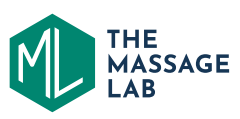Precautions for Deep Tissue Massage
Deep tissue massage, also known as deep massage or intensive massage, is a therapy technique that aims to release muscle tension and improve blood circulation. This type of massage can be very effective in relieving pain and promoting muscle recovery. However, it requires certain precautions to ensure that it is performed effectively and safely. In this article, we will discuss the key precautions to take during deep tissue massage.
1. Consult a professional
Before undergoing a deep tissue massage we will ask you to disclose any medical conditions that may prevent us from providing the technique. Our therapists are fully qualified and will be able to answer any questions.
When it comes to deep tissue massage, communication is key to a successful session. During the treatment, it is important to inform your therapist if you experience any pain, discomfort, or tension. Your therapist can then adjust the pressure accordingly to ensure that the massage is both enjoyable and effective.
4. Examine skin irregularities
Before starting a deep tissue massage, it is important to check the skin for any irregularities. Open wounds, rashes, swelling, or inflammation should be avoided, as a massage may worsen these issues. Inform your therapist if you have any such skin problems so that he or she can adjust the massage accordingly.
5. Avoid use in certain conditions
There are certain conditions in which deep tissue massages should be avoided. These include acute injuries, inflammatory skin conditions, osteoporosis, blood clotting disorders, and some forms of cancer. If you suffer from any of these conditions, it is essential to consult your doctor before undergoing a deep tissue massage.
6. Listen to your body
During a deep tissue massage, it is important to listen to your own body. If you experience any pain or discomfort, make sure to communicate this to your therapist. Excessive or improper massage techniques can lead to injuries. The therapist should adjust the pressure accordingly to ensure that the massage is both effective and safe.
7. Stay hydrated
After a deep tissue massage, you may experience muscle soreness and an increased release of toxins. It is important to drink an adequate amount of water to flush out these toxins and alleviate muscle soreness. Make sure to drink enough water after the massage to support your body.
8. Allow for rest
After a deep tissue massage, your body needs time to recover. Schedule enough rest time after the massage to allow your body to recuperate. Avoid intense physical activities or strenuous exercises immediately after the massage.
In conclusion, deep tissue massages can be highly effective in pain relief and muscle recovery. By following the precautions mentioned above, you can ensure that the massage is performed successfully and safely. Always consult a professional, inform your therapist about your health, communicate during the massage, examine skin irregularities, avoid deep tissue massages in certain conditions, listen to your body, stay hydrated, and allow for sufficient rest. By taking these precautions, you can maximize the benefits of a deep tissue massage.
FAQ
1. What information should I share with my therapist before a deep tissue massage?
It is important to inform your therapist about your health history, especially chronic conditions, injuries, or allergies. This allows the therapist to adjust the massage accordingly and minimize potential risks. Conditions such as blood clotting disorders or pregnancy may require the therapist to modify the massage or avoid certain areas
2.How should I communicate during a deep tissue massage?
Communication is key during a deep tissue massage. You should inform your therapist if you experience pain, discomfort, or tension during the treatment. Your therapist can then adjust the pressure to ensure a comfortable and effective massage.
3.What should I do if I have skin irregularities before a deep tissue massage?
Before starting a deep tissue massage, it is important to check your skin for any irregularities. Open wounds, rashes, swelling, or inflammation should be avoided, as a massage may worsen these issues. Inform your therapist if you have such skin problems so that they can adjust the massage accordingly.



